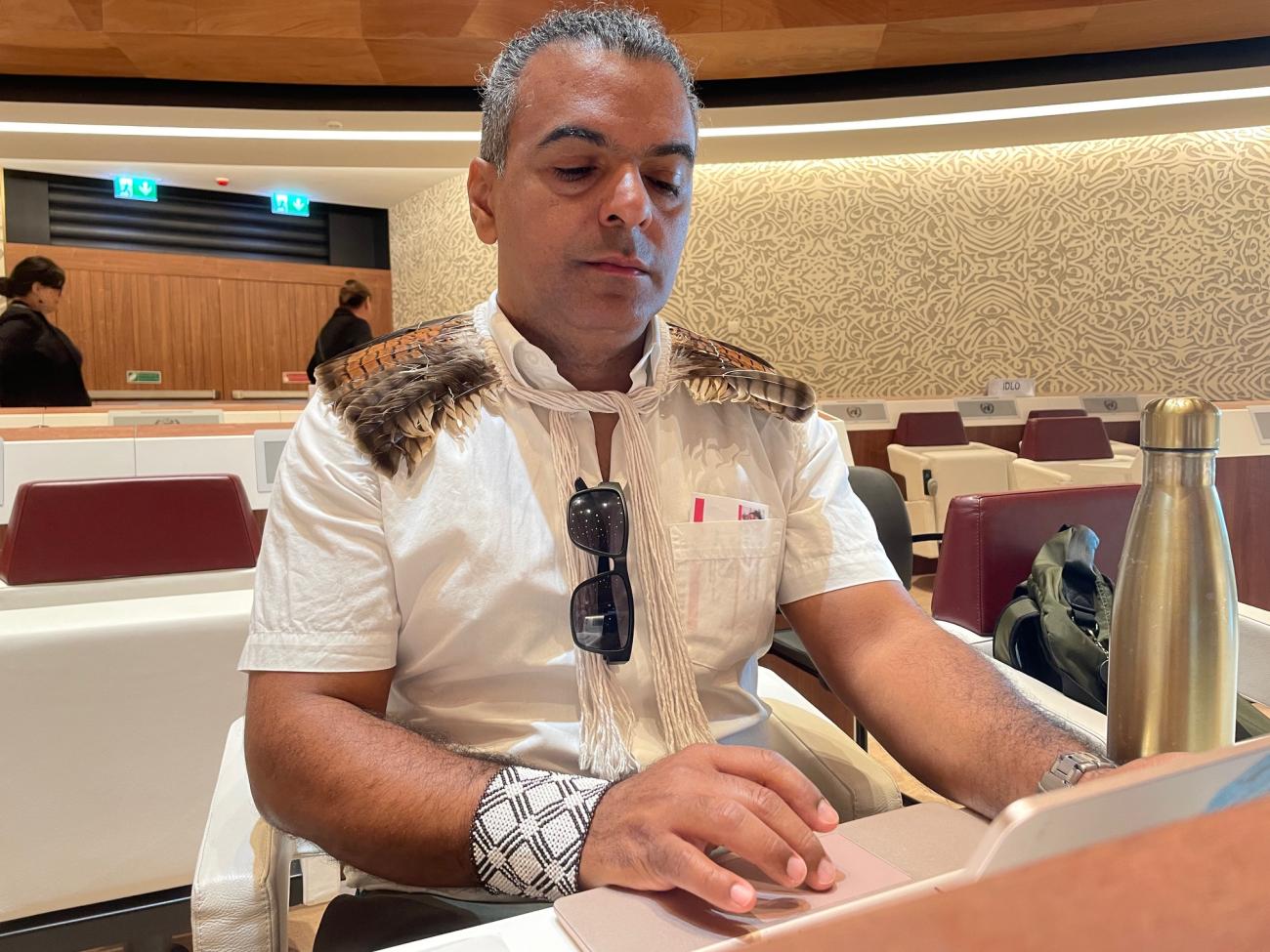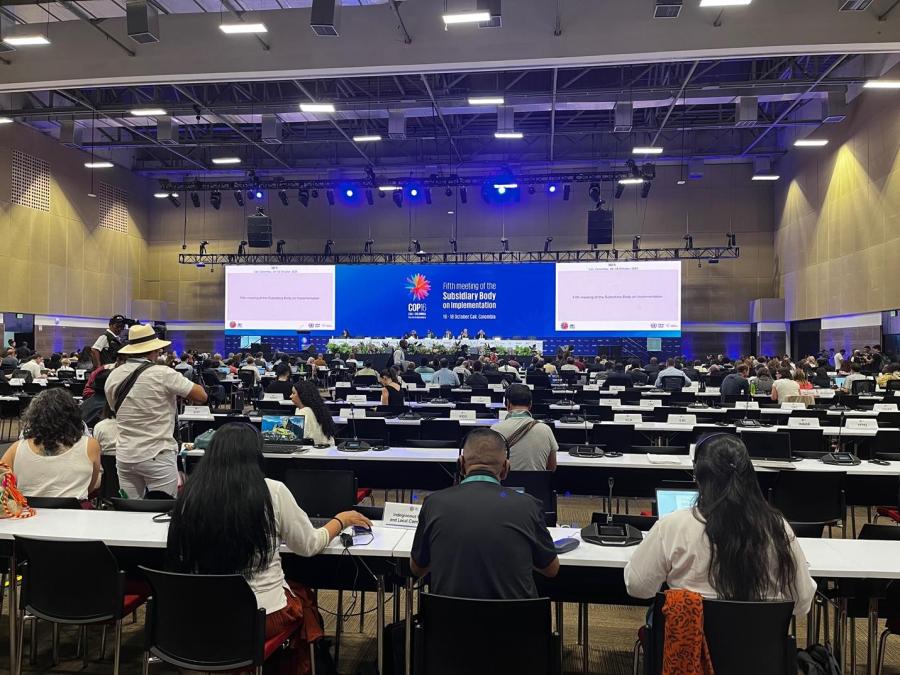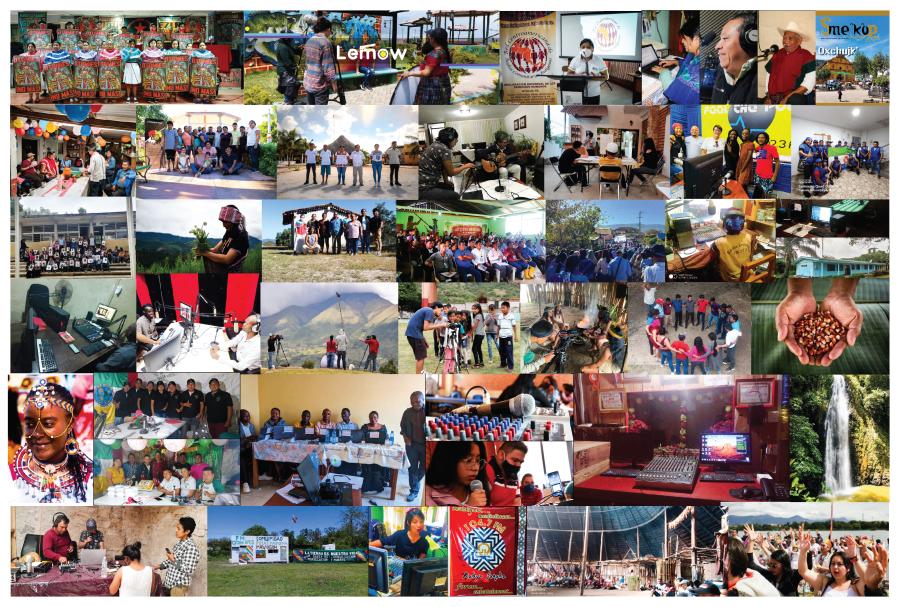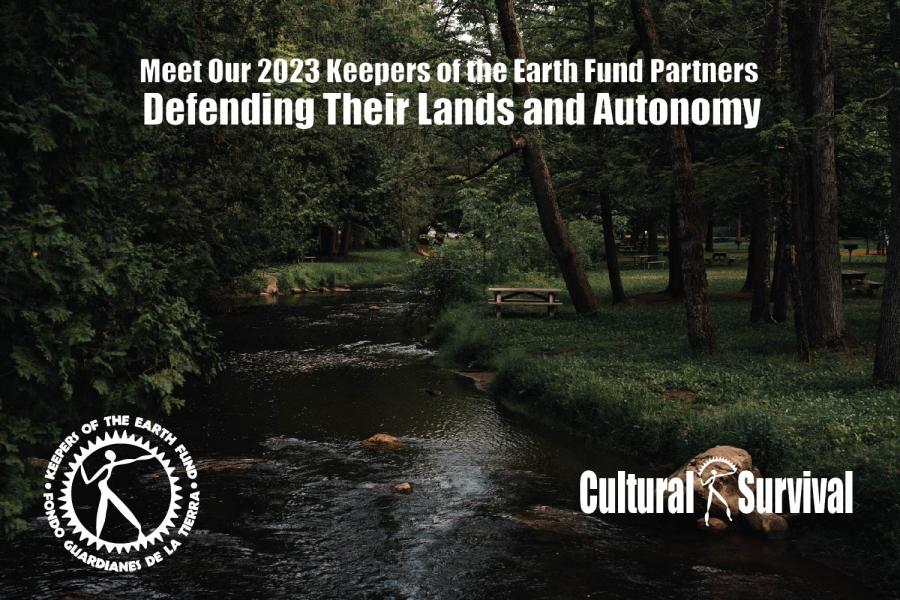
Submitted by Cultural Survival
EMRIP Item 5: Dialogue with Special Rapporteur on the Rights of Indigenous Peoples, the Chair of the UNPFII and the Board of Trustees of the UN Voluntary Fund for Indigenous Peoples and members of the United Nations Treaty Bodies on UNDRIP implementation
Esteemed Special Rapporteur, distinguished delegates, and esteemed colleagues and parentes,
My name is Edson Krenak, from Krenak Peoples in Brazil. We are at a pivotal moment, where the transition to renewable energy technologies is urgently needed to combat climate change. However, this transition must be just and equitable, ensuring it does not perpetuate the same systems of exploitation and degradation that have devastated Indigenous Peoples and biodiversity. We call for an energy transition that centers the rights of Indigenous Peoples, as outlined in the Declaration
Today, the demand for battery metals like cobalt, lithium, and others is skyrocketing, driven by the global shift towards electric vehicles and renewable energy. Yet, we must confront a harsh reality: metal mining is one of the world’s dirtiest industries.
Lucas Quilombola, my friend from the Jequitinhonha Valley, where lithium extraction is growing says: “We cannot talk about solidarity with the world or a clean energy transition if its construction devastates our communities. Physical slavery may have ended, but the torture continues in different forms, only noticed by those who directly experience it. We need economic and development support from the State, not from mining companies. If the State fulfilled its role, we would have our needs met with regard to health, education, roads, water, and territory. The current model of development offered by the State is one of death, not improvement.”
We call on states to make binding commitments to ensure that Indigenous Peoples’ right to self-determination and FPIC are respected in any situation where a state or company is seeking to engage in any extractive project, and we call on businesses, financial institutions, and investors to uphold these standards in their policies and practices. Let us ensure that the energy transition does not recreate the systems of exploitation it has the potential to replace. Together, we can build climate solutions that put Indigenous Peoples and the environment first, fostering a future where all can thrive in harmony with nature.
Thank you.



